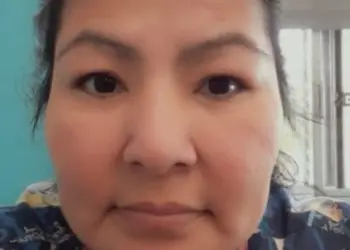A new Statistics Canada report has found that homicides of Indigenous women and girls are less likely to result in the most serious murder charges than cases in which victims were non-Indigenous.
The study, released Wednesday, looked at how homicides of Indigenous women and girls moved through the court system, and how the outcomes of those cases compared to those of non-Indigenous women and girls.
More than half of cases involving non-Indigenous women and girls between 2009 and 2021 resulted in charges of first-degree murder.
But when the victim was Indigenous, police laid or recommended that charge half as often. The less-serious offences of second-degree murder and manslaughter were more common.
During that time period, StatCan found, Indigenous women and girls were killed at a rate six times higher than that of women and girls who were not Indigenous.
The report’s release coincided with the Sisters in Spirit Day and the National Day of Action for Missing and Murdered Indigenous Women, Girls and 2SLGBTQQIA+ people.
2SLGBTQQIA+ refers to people who are two-spirit, lesbian, gay, bisexual, transgender, queer, questioning, intersex, asexual and other sexual orientations and genders.
Advocacy organizations used the day as a rallying cry to raise awareness about violence towards these groups, and as a call to action to improve their safety.
The StatCan study said 87 per cent of homicides of Indigenous women and girls between 2009 and 2021 solved, compared to 90 per cent of cases where the victim was a non-Indigenous woman or girl.







